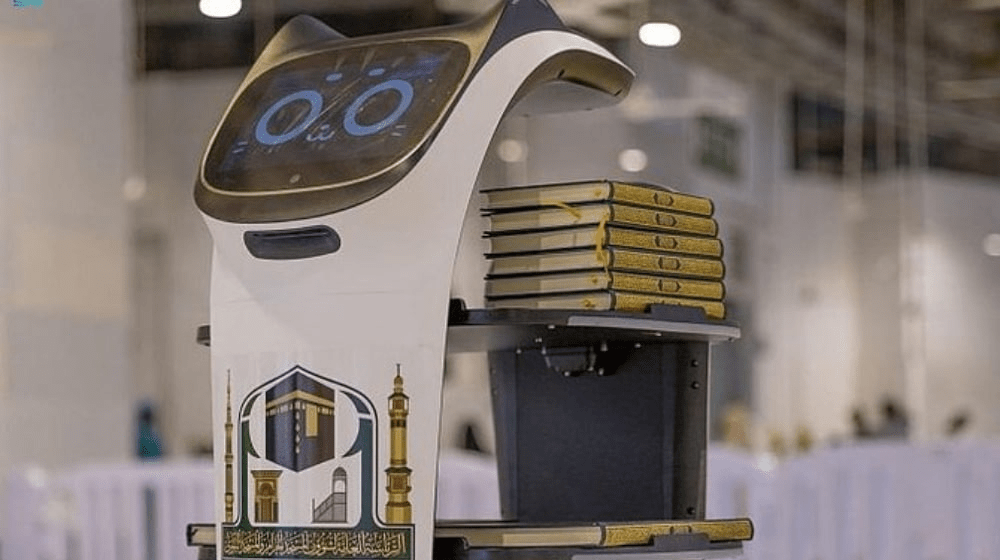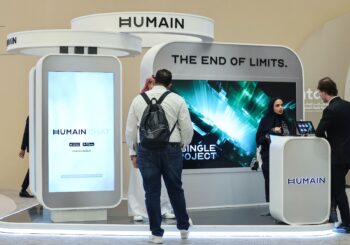In Saudi Arabia, technology has become directly intertwined with religion, significantly impacting how Muslims engage with the Quran and participate in pivotal rituals like Hajj or pilgrimage (Islamic pilgrimage to Mecca that every able Muslim must perform once in their lifetime).
This modernization is exemplified through the emergence of AI-powered Quran platforms, the digitization of Hajj processes, and the incorporation of smart technologies in mosques.
These platforms, such as TajweedMate and Tarteel, utilize sophisticated algorithms to analyze individual recitations, offering instant feedback on pronunciation and adherence to the art of Tajweed, which governs the correct articulation of Quranic verses.
AI-powered Quran platforms democratize education in Quranic recitation, enabling individuals to learn at their own pace and receive immediate corrective feedback. This empowers users to foster a deeper connection with the text, inviting them to engage meaningfully with their faith.
By focusing on personalized learning, AI technologies such as Tarteel or recitation (the slow, clear, and melodious recitation of the Qur’an) application have shown remarkable effectiveness in aiding users to improve their recitation accuracy. For example, Tarteel reports its voice‑matching algorithms now achieve approximately 98 percent accuracy.
These applications also expand accessibility for any Muslims who may not have access to qualified teachers, especially in remote regions or communities with limited resources.
However, the impact of technology extends beyond personal study; it also revolutionizes collective religious practices, particularly during Hajj, a fundamental pillar of Islam, which has long posed significant logistical challenges due to the sheer volume of participants converging on Mecca each year.
In response, the Saudi government has implemented comprehensive digital solutions such as the Nusuk system, a single digital platform, which translates to “pilgrimage ritual” in Arabic, and combines essential Hajj and Umrah services, including lodging, transportation, and visa applications. It integrates various essential services into a single platform for pilgrims.
This system streamlines processes such as e-visa applications, accommodation bookings, and health assessments, ultimately reducing the friction often experienced during the pilgrimage.
By utilizing unified portals, pilgrims can navigate their journey more smoothly, which is crucial for managing health and safety during such a massive gathering. Effective real-time health data collection—through digital health reporting systems—enables authorities to respond dynamically to any emerging health concerns, ensuring safety and preparedness.
While digital platforms facilitate administrative convenience, they also enhance the overall pilgrim experience, aligning seamlessly with Saudi Arabia’s Vision 2030 initiative aimed at improving service quality and public welfare.
Smart mosques, which are outfitted with IoT-based sensors that optimize energy consumption while enhancing the comfort of worshippers, represent another significant advancement in how religious spaces operate in Saudi Arabia.
Research demonstrates that these systems have led to substantial energy savings, especially during non-prayer hours, while also improving the air quality during crowded prayer times by dynamically managing ventilation based on occupancy levels.
This dual focus on operational efficiency and environmental comfort aligns religious practices with modern sustainability goals to illustrate that spiritual spaces can adapt to contemporary needs without losing their essence.
The reception of technology in mosques has generally been positive among administrators, who report benefits such as reduced operational costs and improved maintenance management. With maintenance and energy consumption being managed remotely through these sensor-driven systems, mosque officials can prioritize tasks more effectively.
The fusion of technology with religion in Saudi Arabia exemplifies an approach to faith that respects tradition while embracing modernity.
As technology transforms how Saudis engage with faith, it also sparks important conversations about balancing innovation with tradition. AI Quran platforms, digital Hajj management, and smart mosques illustrate how faith and technology can coexist, enriching spiritual experiences while preserving cultural and religious depth.








Comments (0)